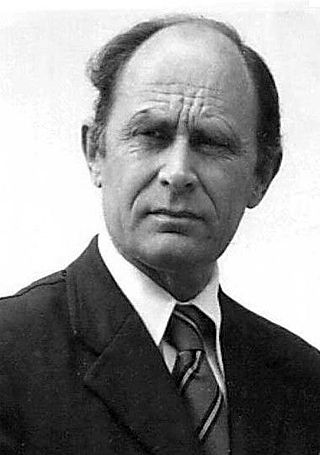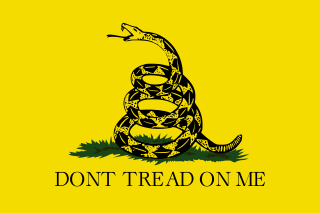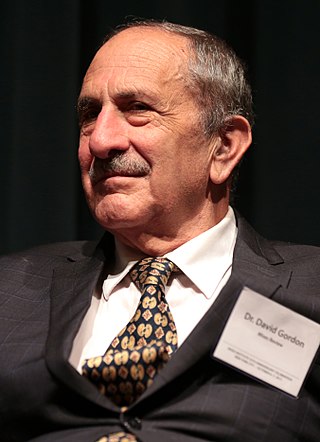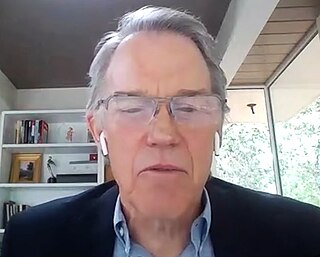
Gary Kilgore North was an American writer, Austrian School economic historian, and leading figure in the Christian reconstructionist movement. North authored or coauthored over fifty books on topics including Reformed Protestant theology, economics, and history. He was an Associated Scholar of the Mises Institute.

Murray Newton Rothbard was an American economist of the Austrian School, economic historian, political theorist, and activist. Rothbard was a central figure in the 20th-century American libertarian movement, particularly its right-wing strands, and was a founder and leading theoretician of anarcho-capitalism. He wrote over twenty books on political theory, history, economics, and other subjects.

Thomas Sowell is an American economist, author, and social commentator who is a senior fellow at the Hoover Institution. With widely published commentary and books—and as a guest on TV and radio—he became a well-known voice in the American conservative movement as a prominent black conservative. He was a recipient of the National Humanities Medal from President George W. Bush in 2002.

The Hoover Institution is an American public policy think tank that promotes personal and economic liberty, free enterprise, and limited government. While the institution is formally a unit of Stanford University, it maintains an independent board of overseers and relies on its own income and donations. It is widely described as a conservative institution, although its directors have contested its partisanship.

Richard Allen Epstein is an American legal scholar known for his writings on torts, contracts, property rights, law and economics, classical liberalism, and libertarianism. He is the Laurence A. Tisch Professor of Law at New York University and the director of the Classical Liberal Institute. He also serves as the Peter and Kirsten Bedford Senior Fellow at the Hoover Institution and the James Parker Hall Distinguished Service Professor of Law emeritus and a senior lecturer at the University of Chicago.

Edward E. Clark is an American lawyer and politician who ran for governor of California in 1978, and for president of the United States as the nominee of the Libertarian Party in the 1980 presidential election.

Antony Cyril Sutton was a British-American writer, researcher, economist, and professor.

Mark Thornton is an American economist of the Austrian School. He has written on the topic of prohibition of drugs, the economics of the American Civil War, and the "Skyscraper Index". He is a Senior Fellow with the Ludwig von Mises Institute in Alabama and a Research Fellow with the Independent Institute.
Ralph Raico was an American libertarian historian of European liberalism and a professor of history at Buffalo State College.
Libertarianism is a political philosophy that upholds liberty as a core value. Libertarians seek to maximize autonomy and political freedom, and minimize the state's encroachment on and violations of individual liberties; emphasizing the rule of law, pluralism, cosmopolitanism, cooperation, civil and political rights, bodily autonomy, freedom of association, free trade, freedom of expression, freedom of choice, freedom of movement, individualism, and voluntary association. Libertarians are often skeptical of or opposed to authority, state power, warfare, militarism and nationalism, but some libertarians diverge on the scope of their opposition to existing economic and political systems. Various schools of libertarian thought offer a range of views regarding the legitimate functions of state and private power. Different categorizations have been used to distinguish various forms of Libertarianism. Scholars distinguish libertarian views on the nature of property and capital, usually along left–right or socialist–capitalist lines. Libertarians of various schools were influenced by liberal ideas.

In the United States, libertarianism is a political philosophy promoting individual liberty. According to common meanings of conservatism and liberalism in the United States, libertarianism has been described as conservative on economic issues and liberal on personal freedom, often associated with a foreign policy of non-interventionism. Broadly, there are four principal traditions within libertarianism, namely the libertarianism that developed in the mid-20th century out of the revival tradition of classical liberalism in the United States after liberalism associated with the New Deal; the libertarianism developed in the 1950s by anarcho-capitalist author Murray Rothbard, who based it on the anti-New Deal Old Right and 19th-century libertarianism and American individualist anarchists such as Benjamin Tucker and Lysander Spooner while rejecting the labor theory of value in favor of Austrian School economics and the subjective theory of value; the libertarianism developed in the 1970s by Robert Nozick and founded in American and European classical liberal traditions; and the libertarianism associated with the Libertarian Party, which was founded in 1971, including politicians such as David Nolan and Ron Paul.

Clonlara School is private alternative school located in Ann Arbor, Michigan, United States.
The Koret Task Force on K–12 Education is a group of senior education scholars brought together by the Hoover Institution, Stanford University, who work collectively as well as individually on American public education reform issues. The task force was created in 1999 as part of the Hoover Institution's Initiative on American Educational Institutions and Academic Performance. The group conducts original research and assessments of a broad variety of K–12 education issues, policies, and practices.

Martin Anderson was an American academic, economist, author, policy analyst, and adviser to US politicians and presidents, including Ronald Reagan and Richard Nixon. Under the Nixon administration, Anderson was credited with helping to end the military draft and creating the all-volunteer armed forces. Under Reagan, Anderson helped draft the administration’s original economic program that became known as “Reaganomics.” A political conservative and a strong proponent of free-market capitalism, he was influenced by libertarianism and opposed government regulations that limited individual freedom.

Floyd Arthur "Baldy" Harper was an American academic, economist and writer who was best known for founding the Institute for Humane Studies in 1961.

David Gordon is an American libertarian philosopher and intellectual historian influenced by Murray Rothbard's views of economics. He is a senior fellow of the Ludwig von Mises Institute, a libertarian think tank, and is editor of The Mises Review.

Terry M. Moe is a professor of political science at Stanford University, a senior fellow at Stanford University's Hoover Institution, and a member of the Hoover Institution’s Koret Task Force on K-12 Education. Moe is a political scientist, an education scholar, and a bestselling author. He has a B.A. in Economics from the University of California, San Diego, and a Ph.D. in Political Science from the University of Minnesota. At Stanford, he holds an endowed professorship of political science called the William Bennett Munro professorship.

Lanhee Joseph Chen is an American policy advisor, attorney, and academic. Chen serves as the David and Diane Steffy Fellow in American Public Policy Studies at the Hoover Institution, director of domestic policy studies and lecturer in the public policy program at Stanford University, and lecturer in law at Stanford Law School.

Kiron Kanina Skinner is a former Director of Policy Planning at the United States Department of State in the Trump administration. Skinner is presently the Taube Professor of International Relations and Politics at the Pepperdine University School of Public Policy, where she teaches graduate courses in national security and public leadership. Prior to that, she was the Taube Professor of International Relations and Politics at Carnegie Mellon University, and the founding director of the Institute for Politics and Strategy and associated centers at the university. She is also the W. Glenn Campbell Research Fellow at the Hoover Institution. After leaving the Department of State, she returned to her position at Carnegie Mellon University until stepping down in 2021.















